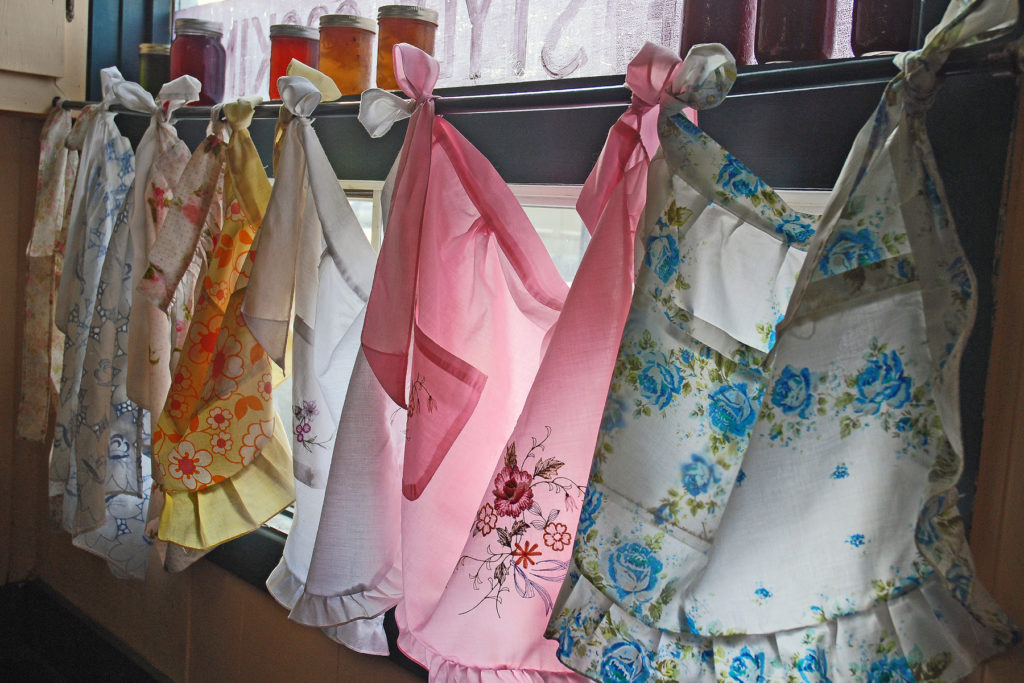Recipe Books
My mother pulls out a pink recipe book
from her Company’s Coming collection,
the spine spiralled,
turning in upon itself in a subdued imitation
of regret. I think of all the recipe books she gave me,
that I crammed into a water-stained cardboard box
and took to the Salvation Army
the year I moved from Sherbrooke to Québec.
She sits at the table, runs a finger
down the list of ingredients for rhubarb crumble,
flattens her lips in concentration, leans back
in her chrome kitchen chair.
“It’s too hot,” she says. I offer to do it,
to cut the rhubarb, boil the white sugar and water,
press the oatmeal-butter-brown-sugar mixture
into greased pans, as though this will compensate
for all the recipes I have not made
from those books she gave me,
those books I abandoned,
their spines now slanted anonymously
on the shelves of some used book store,
collecting dust, staring back at hungry strangers
whose mothers never baked for them
like mine did—current cookies, scones, ginger cake,
uncooked chocolate cookies, raisin pies,
date squares—hours and hours of her life
spent jackknifed over an oven.
My mother declines my offer. The moment
for baking is gone. There will be
no crumbs, no smear of sweetness
across my tongue. The recipe book is closed,
all its instructions for sharing moments of love
and happiness trapped
within its silenced pages.
I had no idea.

Retired by Sara Harley
Colonial Guilt (of a Nine-Year-Old Child)
It is true that I may have a great-great-
grandfather who stood among the willows and
tamarack and took your great-great-
grandfather’s furs and gave him muskets, beads,
brass kettles, flannel, knives, Hudson Bay blankets
and alcohol in exchange.
It is true that I may have a grandmother or great-aunt
who taught in residential schools, thinking to
help your mother integrate Canadian society,
teach her Christianity and how to read and write
a language different from the one that cradled her
in her mother’s womb.
And I suppose that, given my heritage—given
all these people who turned your ancestors’
world upside down, their upheaval trickling down
through their blood, despair, anger and tears to
leave you uprooted, displaced, disinherited,
broken-hearted—you might be entitled
to call me names (whiteman, honky),
pull my hair, chase me down on a
skidoo and hold my head
under the snow. I am, after all,
just a symbol—
empty but for the sins and
(occasionally misguided or ignorant,
perhaps well-intentioned but sometimes
simply cruel) mistakes
of my ancestors, written
out plain for all to see.
No scarlet letter this.
Simply white skin.


Loved your touching stories..I did keep the recipe books & always wear an apron, so found the presentation most appealing. m